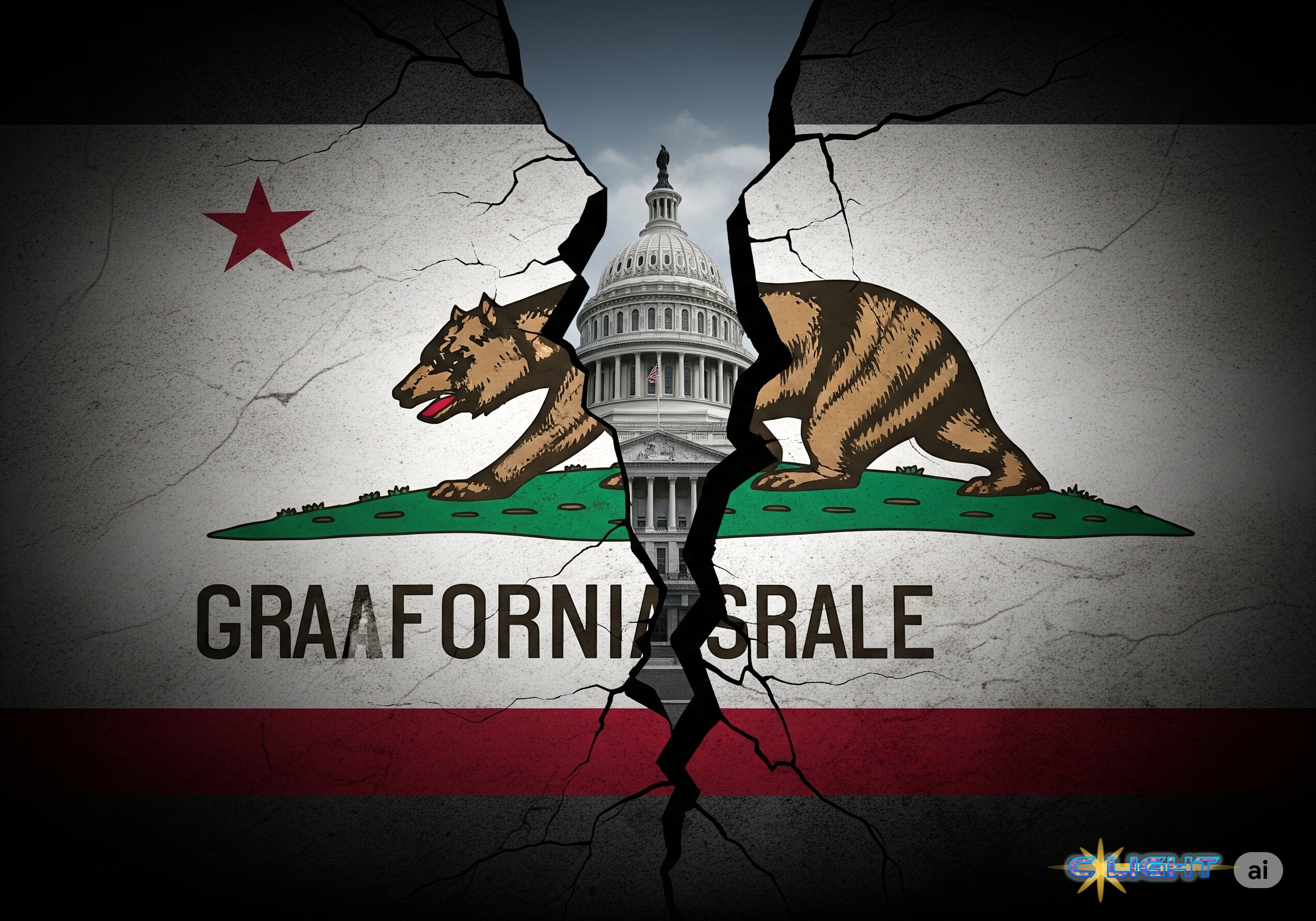To grasp the full reality of the escalating constitutional conflict between the White House and the State of California, one must look beyond any single headline. It is a story that has unfolded in layers, with each new report adding crucial detail and context. Only by assembling the complete mosaic of information can one understand the truth of the situation: a federal appeals court has handed President Trump a temporary, procedural victory, but the fundamental battle over states’ rights and the limits of presidential power is far from over.
On Thursday, the 9th U.S. Circuit Court of Appeals delivered what the Trump administration immediately hailed as a “BIG WIN.” In a unanimous decision, a three-judge panel allowed the president to maintain federal control over the California National Guard in Los Angeles, staying a forceful lower court order that had declared the deployment illegal. The White House’s position was bolstered by the panel’s assertion that Trump was “likely to win on the merits” of the core question of whether he could federalize the troops.
There is no denying the administration had a compelling case on the narrow facts. The court, adopting a “highly deferential” stance to presidential authority, was swayed by specific evidence of violence during the Los Angeles protests, including reports of “mortar-style fireworks” and a federal agent suffering a “shattered wrist.” For the limited purpose of a temporary stay, this was enough.
However, this is where a single headline can mislead. A deeper look at the court’s 38-page ruling, and the context provided by other reports, reveals a crucial counter-narrative—one that strongly affirms the constitutional limits on federal power.
The most significant long-term victory for California, and every state, was the panel’s unequivocal rejection of the administration’s argument that a president’s decision to deploy troops is beyond reproach. “The president is not a king and is not above the law,” Governor Gavin Newsom rightly declared, seizing on the court’s finding that it absolutely has the authority to review such decisions. The court explicitly stated it would not accept a president federalizing the Guard “based on no evidence whatsoever” or on a decision that was “obviously absurd or made in bad faith.” This affirmation of judicial review is a vital bulwark against the kind of unchecked executive power the Trump administration sought to claim.
This echoes the powerful, though now-paused, ruling from U.S. District Judge Charles Breyer. He found the deployment illegal not just on statutory grounds but also as a violation of the Tenth Amendment, which reserves power to the states. He was, as reports noted, deeply “troubled by the idea that a protest against the federal government on its own could justify a finding of rebellion,” rightly noting the events in Los Angeles fell “far short” of that high bar.

Now, the legal battle pivots to a new and perhaps more critical phase. As California Attorney General Rob Bonta stated, this case is “far from over.” The fight returns today to Judge Breyer’s courtroom, where the central issue will no longer be the deployment itself, but the activities of the troops on the ground. The question will be whether using federalized soldiers to protect ICE agents during immigration raids constitutes a violation of the Posse Comitatus Act, the 19th-century law that strictly limits the use of the military for domestic law enforcement.
This is the continued fight for states’ rights. It is California’s assertion that even if the president can federalize the Guard, he cannot use them as a national police force to execute his domestic policy agenda against the will of the state and its local law enforcement, who have maintained from the beginning that they were capable of handling the situation.
This next chapter is freighted with ominous context. The deployment marks the first time since 1965 that a president has seized control of a state’s Guard over a governor’s objections—a precedent last used by President Johnson to protect civil rights demonstrators. The current Defense Secretary has compounded this tension by suggesting he might defy an unfavorable court order, raising the specter of a constitutional crisis between the executive and judicial branches.
The full story, as is so often the case, is not one of simple victory or defeat. It is a complex, ongoing struggle over the foundational principles of American governance. While the White House celebrates a temporary win, California continues to wage a necessary and vital war to defend its sovereignty and ensure that the awesome power of the military is not turned inward against the very citizens it is meant to protect.
Discover more from Chronicle-Ledger-Tribune-Globe-Times-FreePress-News
Subscribe to get the latest posts sent to your email.









